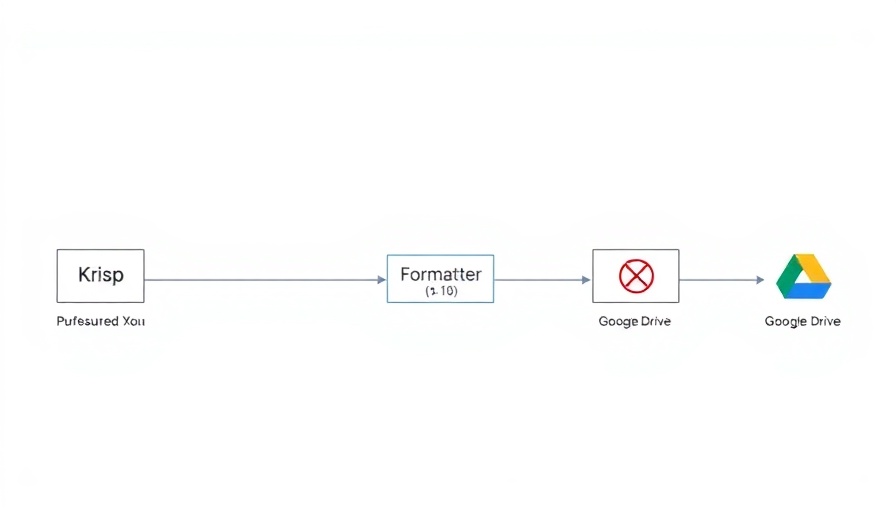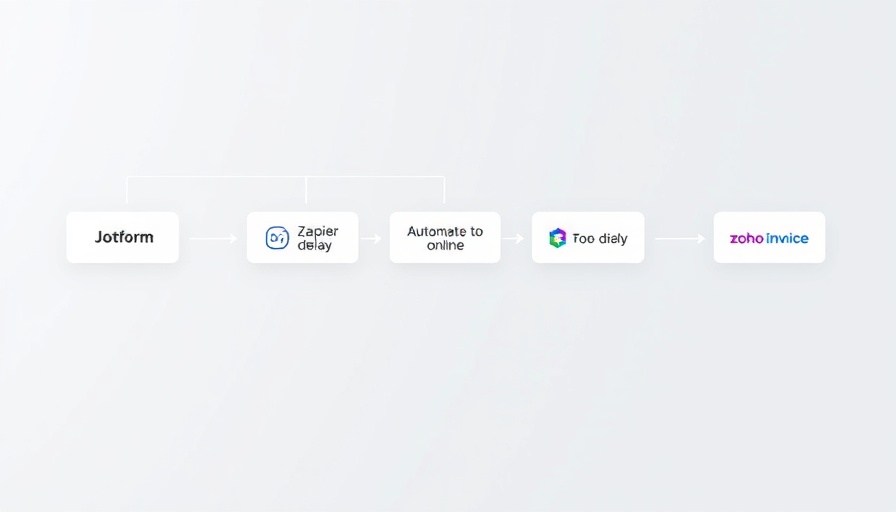
A New Era for Automation: What You Need to Know
As automation strategies evolve, the landscape of services available to professionals is shifting dramatically. Zapier, a key player in automating workflows across various applications, has announced critical changes that will affect users in sanctioned countries. Understanding the implications of these changes is vital for marketing professionals looking to maintain operational efficiency while complying with regulatory frameworks.
Understanding Zapier's Role in Automation
Zapier seamlessly connects different applications, enabling users to automate repetitive tasks without coding knowledge. This integration capability is especially beneficial for marketing professionals, who rely heavily on data synchronization and process automation to optimize team performance and reach business goals.
The Impact of Sanctions on Automation Access
From September 12, 2024, Zapier will cease providing services to customers in sanctioned countries, including Russia and Belarus, due to U.S. government regulations. This move underscores the increasing importance of regulatory compliance for IT service providers. For marketing teams, this may mean reevaluating their reliance on certain tools or finding alternative solutions that align with their operational needs.
Possible Workarounds and Alternatives
While Zapier's changes may seem limiting, there are alternative methods for automation that can mitigate the impact of these sanctions. Tools like Integromat (now Make) and Microsoft Power Automate offer similar capabilities but may provide different regional availability or features. It's essential to explore these options to ensure continuous marketing efficiency.
Why Compliance Matters
Compliance should always be a priority in marketing operations. The prohibition of service offerings in sanctioned countries stems from significant geopolitical issues and can affect business continuity. Being aware of these regulations allows marketing professionals to make informed decisions that safeguard their practices and reputations.
Staying Ahead in a Changing Landscape
The automation landscape is continually evolving, driven by technological advancements and regulatory changes. Marketing professionals should not only adapt to these changes but also anticipate future developments. By staying informed and agile, you can maintain your workflow efficiency while remaining compliant with all pertinent regulations.
Conclusion: Embrace Change
In light of the upcoming changes to Zapier's service provisions, marketing professionals must begin to explore alternative automation solutions and adjust their strategies accordingly. Being proactive will ensure that your team remains effective and resilient in navigating the shifting landscape of automation.
 Add Row
Add Row  Add
Add 




Write A Comment